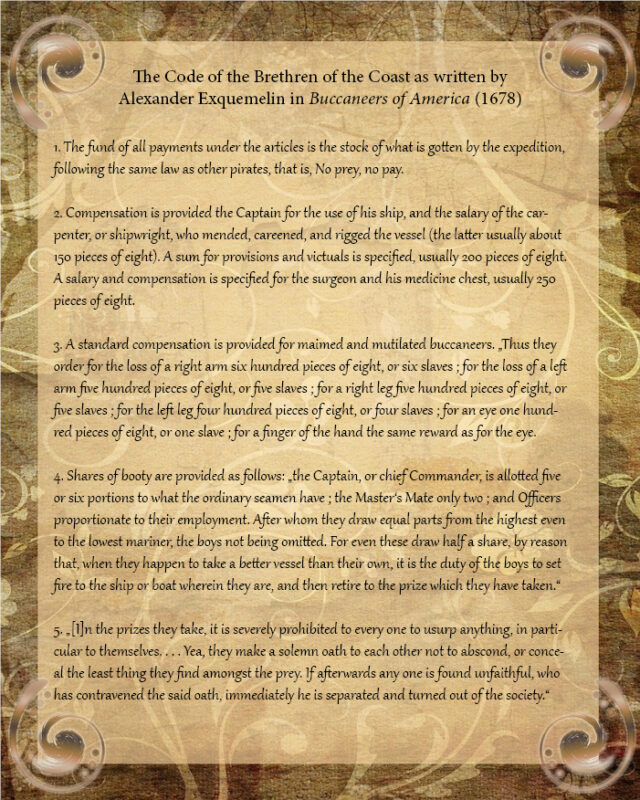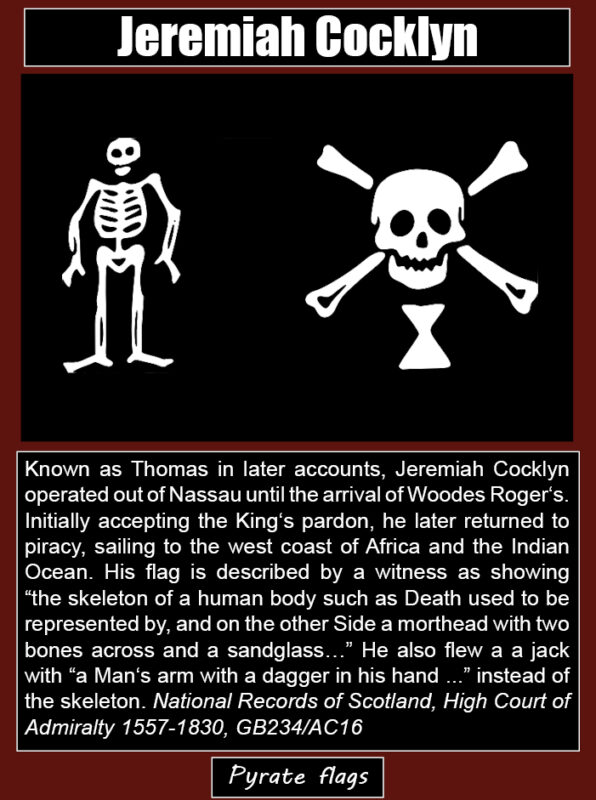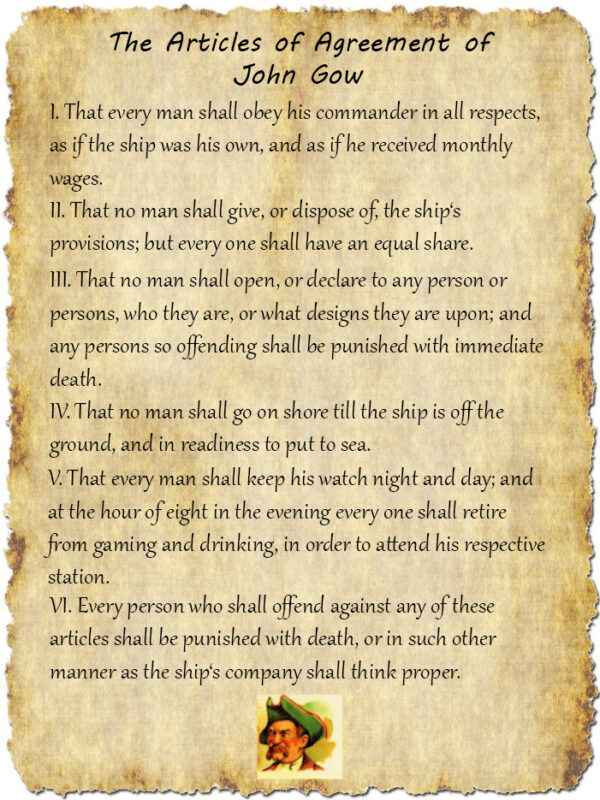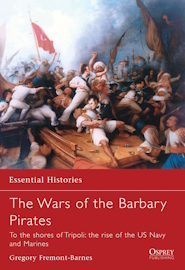Although there are no surviving Articles of Agreement put together by the buccaneers of the 17th century, although Alexander Exquemelin wrote in his book The Buccaneers of America (1678) something about them. He wrote about them about more in general terms, but they could be construed as a more specific code. Because Exquemelin sailed as Henry Morgan’s physician it is likely that these were very similar to Henry Morgan’s actual articles. Exquemelin explained that the buccaneers chose to: “Agree on certain articles, which are put in writing, by way of bond or obligation, which every one is bound to observe, and all of them, or the chief, set their hands to it.”


 Pirates in Their Own Words is a collection of original documents relating to the ‘golden age’ of piracy. Letters, testimonies, witness accounts and other primary source documents written by the pirates themselves, their victims, and the men who hunted them down.
Pirates in Their Own Words is a collection of original documents relating to the ‘golden age’ of piracy. Letters, testimonies, witness accounts and other primary source documents written by the pirates themselves, their victims, and the men who hunted them down.

 The Barbary War – the first American war against Libya – was the first war waged by the United States outside national boundaries after gaining independence and unification of the country. The four Barbary States of North Africa – Morocco, Algiers, Tunis, and Tripoli – had plundered seaborne commerce for centuries. This was piracy on an extraordinary scale: they controlled all trading routes through the Barbary waters and North Africa: demanding ransom and booty for safe passage. In 1801 the newly elected President Jefferson ordered a naval and military expedition to North Africa in order to put down regimes that endorsed piracy and slavery. The Pasha of Tripoli declared war on the United States. Under the leadership of Commodores Richard Dale and Edward Preble, the US Navy blockaded the enemy coast and engaged in close, bitterly contested gunboat actions.…
The Barbary War – the first American war against Libya – was the first war waged by the United States outside national boundaries after gaining independence and unification of the country. The four Barbary States of North Africa – Morocco, Algiers, Tunis, and Tripoli – had plundered seaborne commerce for centuries. This was piracy on an extraordinary scale: they controlled all trading routes through the Barbary waters and North Africa: demanding ransom and booty for safe passage. In 1801 the newly elected President Jefferson ordered a naval and military expedition to North Africa in order to put down regimes that endorsed piracy and slavery. The Pasha of Tripoli declared war on the United States. Under the leadership of Commodores Richard Dale and Edward Preble, the US Navy blockaded the enemy coast and engaged in close, bitterly contested gunboat actions.…